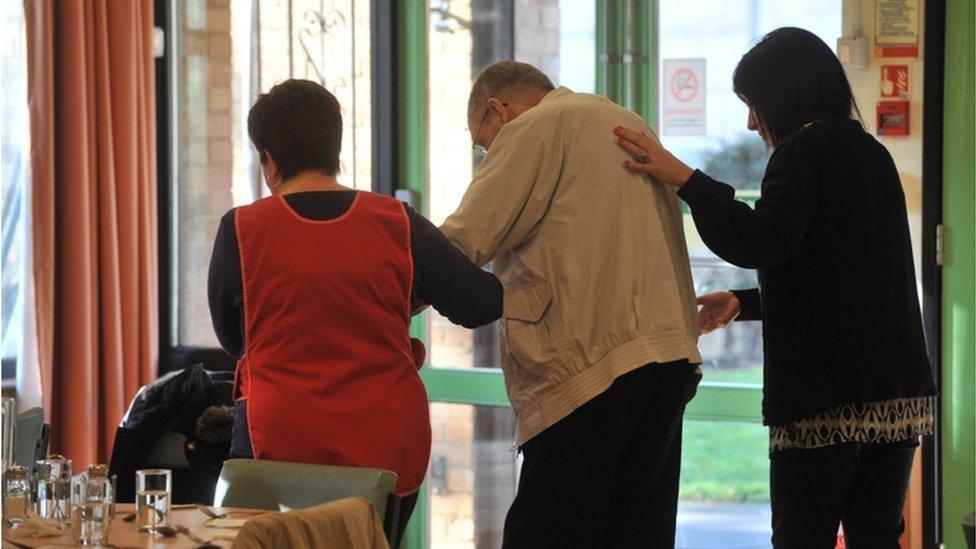Assembly election turnout could reach new low, Tory leader warns
- Published
Greater turnout gives greater credibility to the assembly, says Mr Davies
Turnout in the assembly election could be the lowest so far, the Welsh Conservative leader has warned.
Andrew RT Davies said there was a "disconnect between a fully blown Welsh general election and what the public are buying in to".
A combination of issues, such as the EU referendum and lower public engagement, could mean fewer people bother to cast a vote on 5 May, he said.
The lowest assembly election turnout was 38.2% in 2003.
Speaking to BBC Wales after making a speech in Cardiff highlighting his fears about public interest in the poll, Mr Davies said there was a risk turnout could fall below the 2003 figure.
"Because all elections carry that risk, and I very much hope that instead of having a low turnout we have a record turnout because the issues which are most important to most people in this country; health, education, the economy, local authorities and the environment are all determined from the assembly," he said.
"So I hope we don't see it, but I think there is a risk that could happen."
He also said politicians had to "go the extra mile" over the last thirteen days of the election campaign to get more coverage.
In his speech, Mr Davies said there was little evidence voters were getting the information they needed, accusing parts of the media of being more interested in politicians' tax returns than analysing policies on the NHS, education or local councils.
Political leaders, including Mr Davies, published their tax returns earlier this month in response to questions about Prime Minister David Cameron's income.
Getting the vote out: Vaughan Roderick's view
Mr Davies re-iterated a pledge to introduce a Localism and Citizenship Bill within 100 days of a Welsh Conservative government taking power.
The bill would give communities the right to buy local assets, such as pubs or post offices, and give more powers to local councils.
Roles including the Older People's Commissioner, the Children's Commissioner and the Future Generations Commissioner would be answerable to all AMs, not the Welsh Government, he added.
In its first 100 days, a Welsh Tory government would also sell off ministerial cars, publish details of Welsh Government spending and ensure an entire Welsh Government department is re-located to north Wales.
At the previous assembly election, in 2011, the Conservatives finished second, winning 14 of the 60 seats.
'Unspun'
A UKIP spokesman said: "Low turnout is becoming increasingly problematic across a range of elections with the Welsh assembly elections being no different."
He said there was a "sense of disenfranchisement" because people were "confused as to who does what and where and how they can have their voices heard".
Calling for politics to be taught in schools, the spokesman added: "Interestingly, of course, UKIP's continuing success is drawing a lot of non voters suggesting our approach to honest, unspun politics is what many voters are crying out for."
- Published18 April 2016
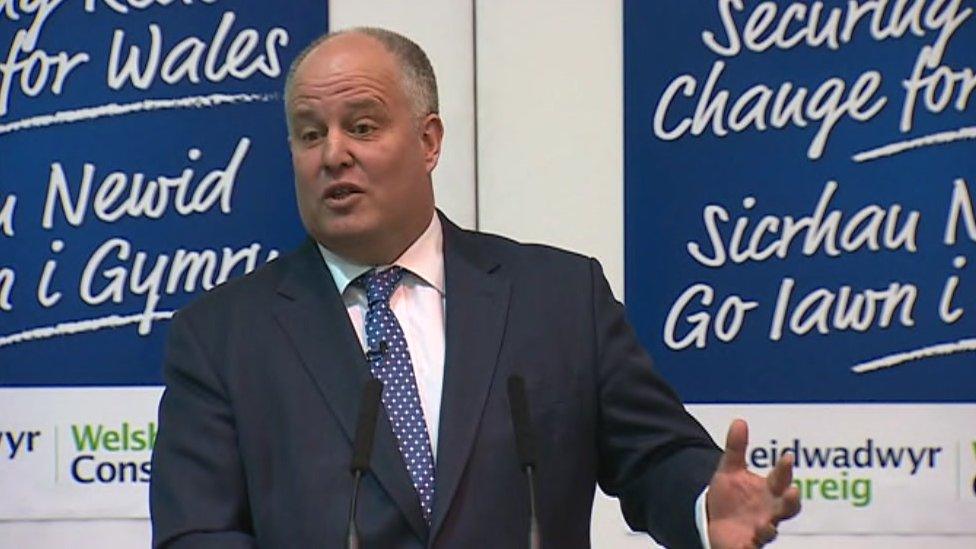
- Published21 April 2016
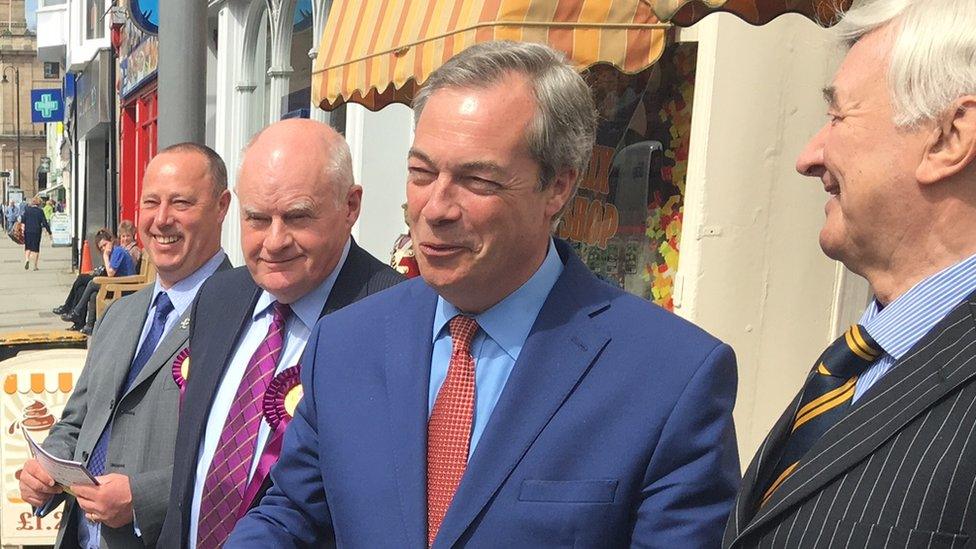
- Published20 April 2016
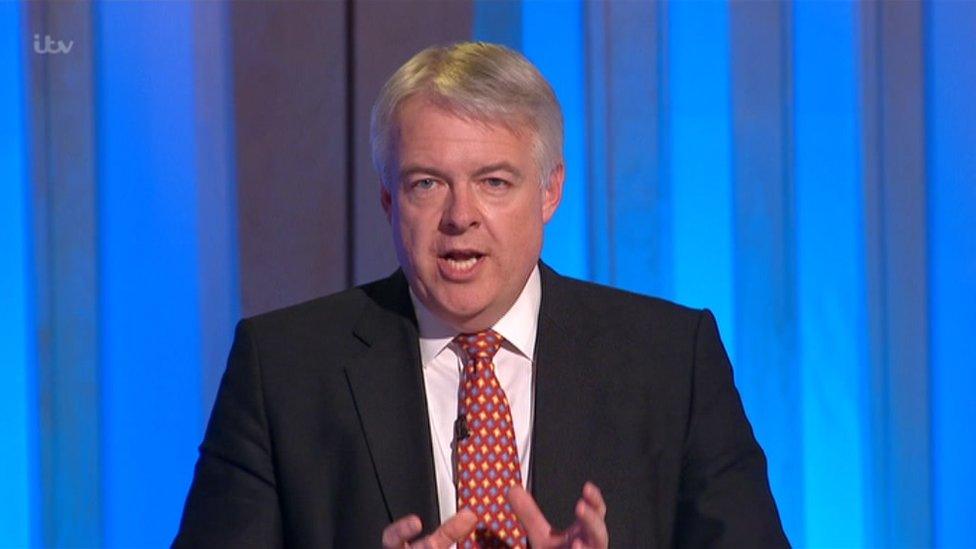
- Published21 April 2016
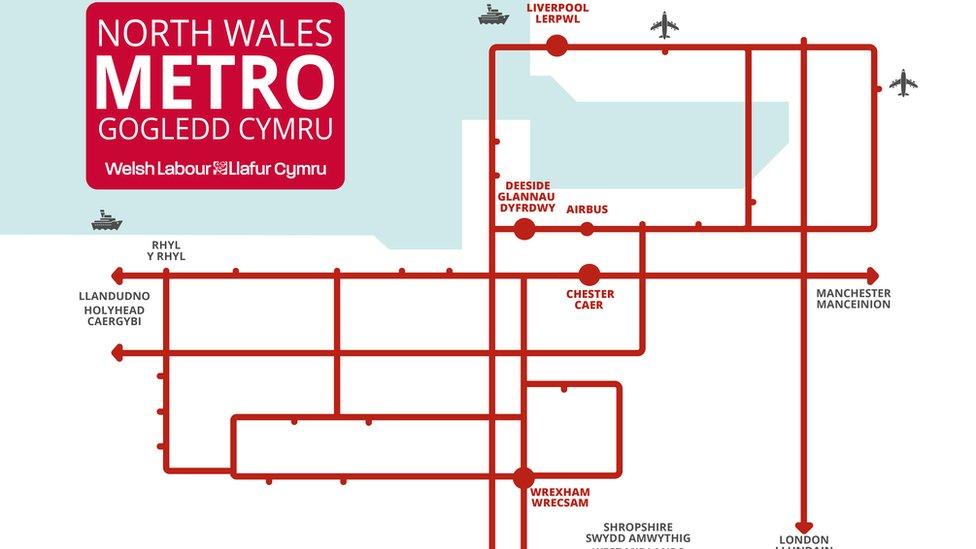
- Published21 April 2016
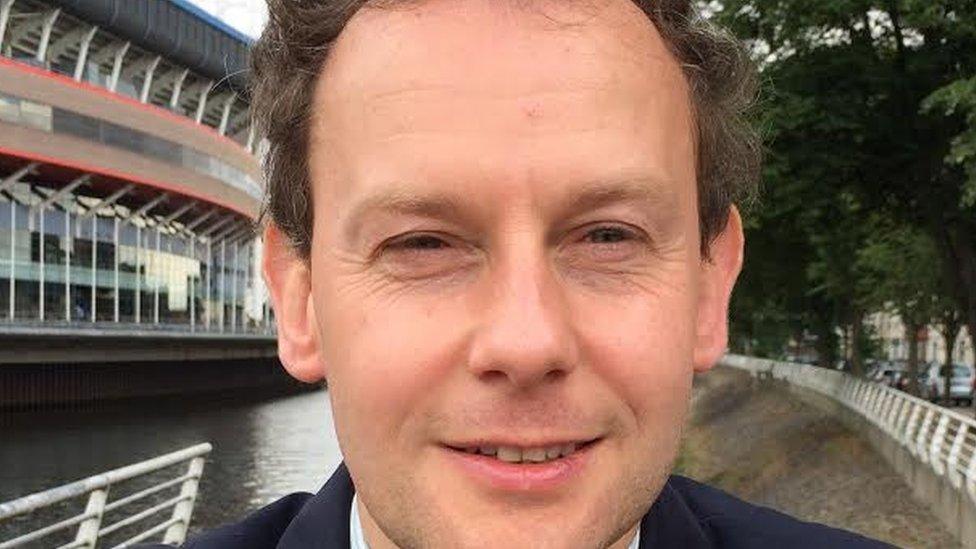
- Published21 April 2016

- Published20 April 2016
